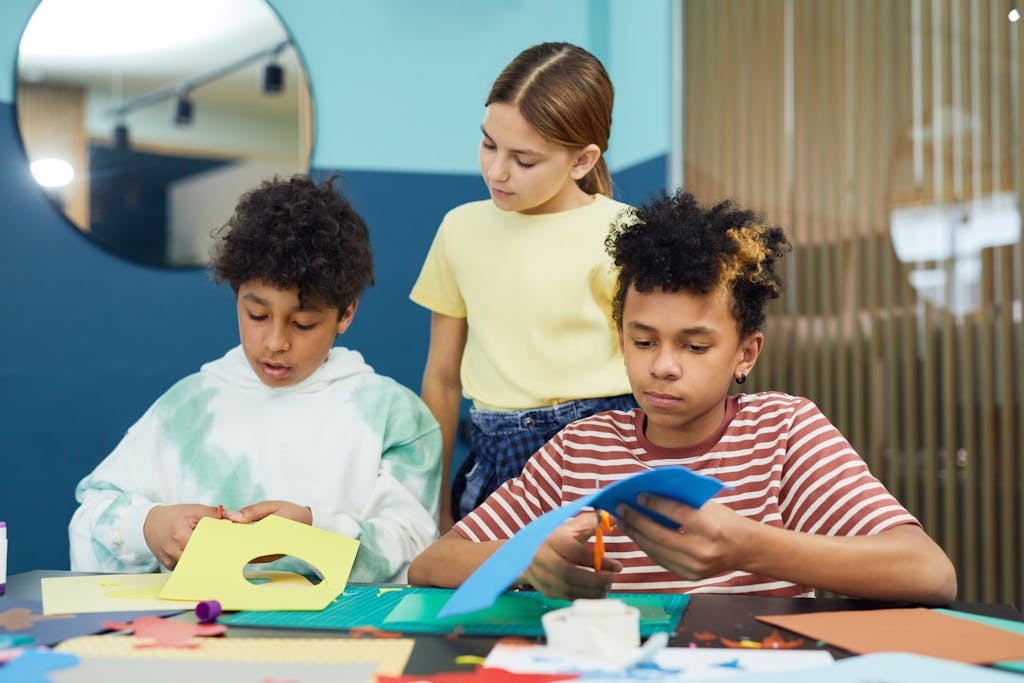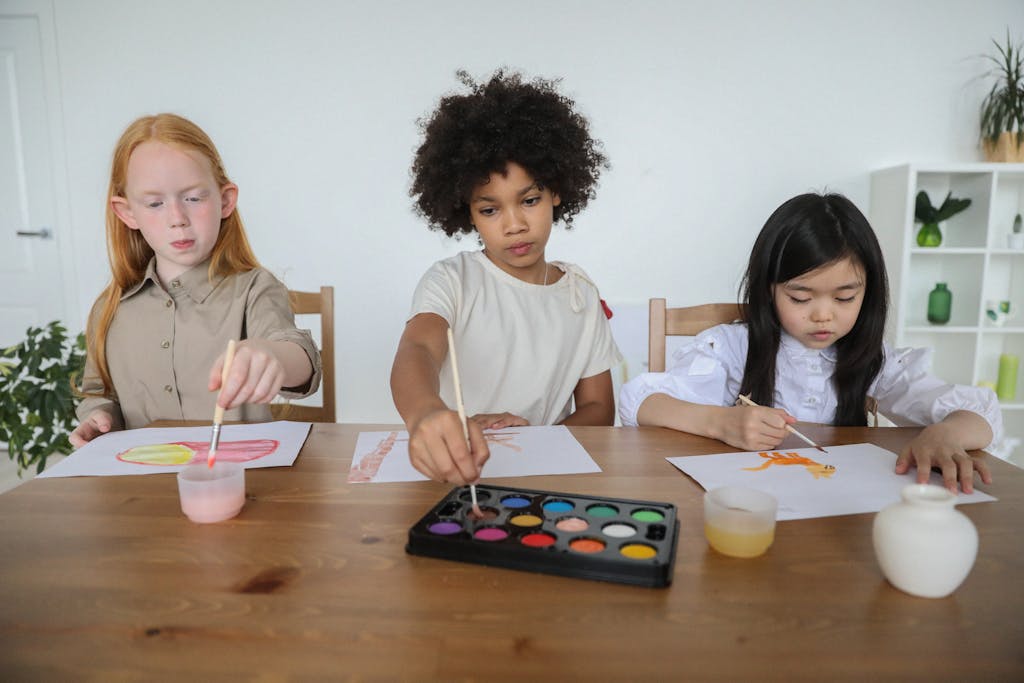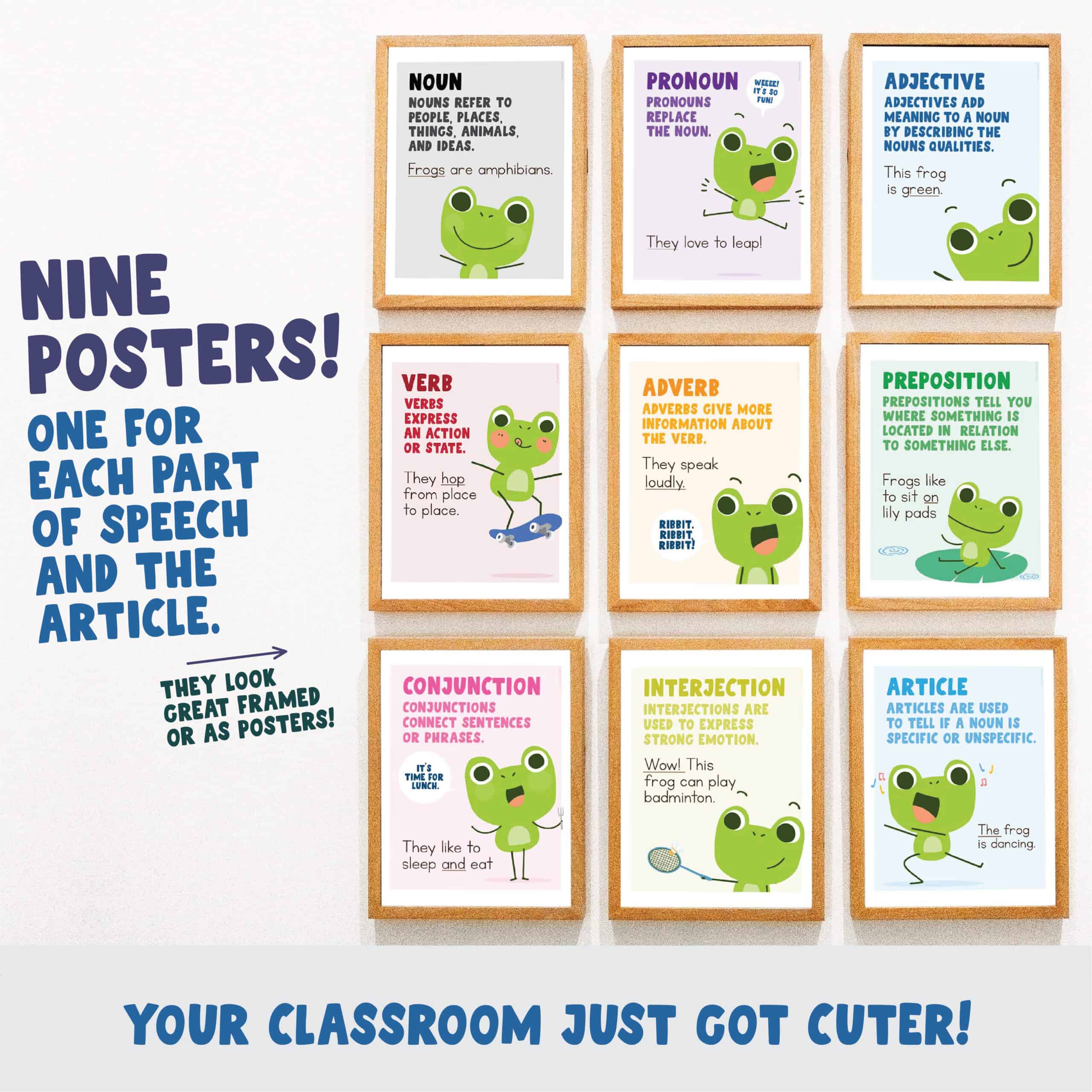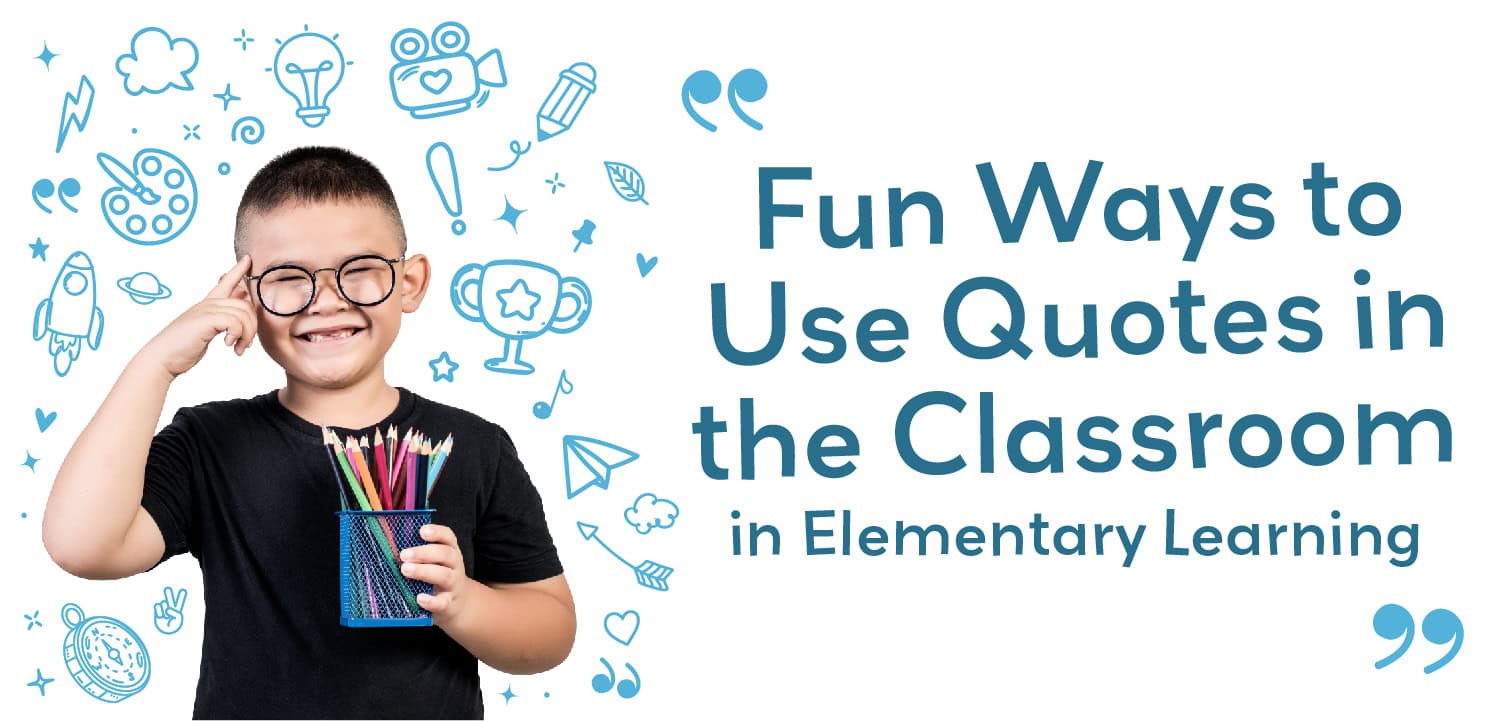13 Fun Ways To Use Quotes In Elementary Learning
As an experienced elementary Montessori teacher, I know a thing or two about integrating fun activities with quotes into the classroom. By incorporating meaningful quotes into engaging activities, you create an environment that enhances student learning in a memorable and impactful way.
This blog post offers fun activities that will bring the wisdom of great minds into the classroom while also exploring the benefits of using quotes in education. Let’s get into how you can use quotes in the classroom to inspire and motivate your students.

13 Fun Activities with Quotes
Here are a bunch of fun activities with quotes that will make learning engaging and enjoyable for your elementary students. You’re welcome!
1. Quote of the Week
Start each week off with a new quote and gather to discuss its meaning a few times throughout the week. This activity fosters critical thinking and reflection as students analyze the quote’s meaning and relevance to their lives. It sets a positive tone for the week and encourages thoughtful discussion among students, promoting a deeper understanding of concepts and values.
Integrating quotes into daily routines cultivates a culture of inspiration and intellectual engagement in the classroom.
How to Implement:
- Choose a quote that aligns with what you’re teaching or the values you want to promote.
- At the beginning of the week, write the quote on the board or post it somewhere students will see it daily.
- Read it aloud to the class early in the week and then a few more times during the week.
- Meet at least once as a class to have a short discussion about the quote’s meaning and its relevance to the students’ lives.
Benefits:
This activity helps students think about important ideas, making the classroom feel positive and welcoming. With different quotes to explore each week, kids learn to think deeply and understand different points of view.
It’s also a great way to improve their thinking and apply what they learn to real life.

2. Quote Art Projects
Task students with creating artwork inspired by an impactful quote. Once they select a quote that resonates with them personally, they use it as a guide for their artistic expression. This is one of many fun activities with quotes that can enhance creativity and personal connection.
Through drawings, paintings, sculptures, collages, or any artistic avenue they will visually interpret the essence of the chosen quote, they will infuse their unique perspectives into their creations. It’s learning in disguise!
How to Implement:
- Offer a selection of uplifting quotes for students to choose from.
- Encourage each student to select one quote that speaks to them.
- Provide art materials such as paper, paint, markers, clay, old magazines, glue, glitter, feathers, etc.
- Allow students the freedom to create pieces of art that reflect their interpretation of their chosen quote.
Benefits:
Engaging in quote art projects allows students to tap into their creativity while contemplating the profound messages conveyed in the quotes they select. Through artistic expression, they not only create visually appealing pieces but also deepen their understanding of the underlying concepts and themes.
This activity fosters critical thinking, creativity, and self-expression in a meaningful and enjoyable way.

3. Respond To a Quote Writing Activity
Encourage students to ponder the meanings behind quotes. Through this activity, kids will think about what the quote means, how it makes them feel, and reflect on how the quote relates to them. Their written responses will show deep thoughts and connections to the quotes, making it an excellent addition to classroom vocabulary activities.
How to Implement:
- Provide students with a list of quotes that are known to inspire and ignite success. These can be about various topics such as perseverance, courage, or determination.
- Ask students to choose one quote to focus their writing on. Encourage them to write about the quotes message and how it relates to their own experiences.
- Allow time for writing, emphasizing the use of personal examples to enhance their responses.
- Gather the class to talk about the quotes they chose. Encourage sharing of their written responses.
Benefits:
This fun activity using quotes invites students to explore the messages embedded in quotes, fostering critical thinking and literary exploration. By relating these messages to their own lives, students develop a deeper understanding of the quotes’ significance.

4. Quote Discussions and Debates
Encourage students to engage deeply with thought-provoking quotes by having them take a stance for or against the quote. Divide the class into groups, and let each group discuss their perspectives before presenting their arguments to the class.
This activity stimulates critical thinking, promotes thorough analysis, and enhances students’ speaking and listening skills. It also fosters teamwork and respectful dialogue as they explore different viewpoints.
How to Implement:
- Select quotes that can lead to interesting discussions or debates.
- Divide the class into small groups and assign one group to be for the quote and one group to be against the quote.
- Have each group discuss the quote, formulate opinions, and then present their thoughts to the class.
- Facilitate a class-wide discussion or debate on the different interpretations and perspectives.
Benefits
This is one of my favorite fun activities with quotes because it helps students practice speaking and thinking critically by sharing their ideas with classmates. Working in small groups teaches them to collaborate and respect different opinions. Plus, the activity encourages everyone to listen respectfully and communicate well, making the classroom a supportive place for learning.

5. Quote Journals
This is one of those fun activities with quotes that is open-ended and ongoing. In this exercise, students maintain a journal to capture and reflect on intriguing quotes they encounter throughout the day. This practice encourages self-awareness and curiosity, as students in the second plane of development remain observant of impactful quotes that resonate with them.
How to Implement:
- Provide each student with a journal specifically for jotting down quotes that stand out to them.
- Regularly present new quotes for students to write down in their journals and encourage them to be on the look out for quotes they align with in the books, movies, and conversations all around them.
- Challenge students to fill their quote journals with a specific amount of quotes each week, or have them casually add quotes at their own leisure.
Benefits:
Quote journals offer multiple benefits for students. They promote reflective thinking, allowing students to ponder the meaning of quotes that they find interesting. These journals also enhance writing skills as students articulate their thoughts and insights in written form.

6. Quote Posters
Encourage creativity with quote posters! Students will select a meaningful quote and bring it to life in the form of an eye-catching poster. This is a fun and expressive activity that helps kids grasp the essence of the quotes in a creative way.
How to Implement:
- Have students select one quote they find inspiring.
- Provide materials for creating posters, including paper, poster board, markers, stencils, and all sorts of other art supplies.
- Ask students to illustrate the quote on a poster and decorate it in a way that represent its meaning.
- Display the posters around the classroom or school.
Benefits:
By combining artistic skills with literacy, this quote activity provides students with a multifaceted learning experience that enhances both their creative and academic abilities. As they create visually stimulating posters, students not only express themselves artistically but also reinforce their understanding of the quotes’ message.
On top of that, these posters create an inspiring and thought-provoking environment in the classroom, fostering teachable moments and a deeper appreciation for the power of words and imagery.

7. Quote Relay Race
Turn quote exploration into a fun and physically engaging activity with a quote relay race! Divide students into teams and have a stack of different quotes placed on one end of the classroom or outdoor area. Each team member will get a chance to run from the start point to the stack of quotes, choose one quote and read it out loud, and then run the quote back to the start.
This dynamic activity can be adapted for different age groups and is suitable for both indoor and outdoor settings.
How to Implement:
- Select a variety of quotes and write them on cue cards or slips of paper.
- Stack the quotes in a location in the classroom or outdoor area.
- Divide students into teams of equal size.
- Explain the rules of the relay race: One member from each team runs to the stack of quotes, picks one, reads it out loud, and then runs back to the start with the quote to tag the next teammate.
- Continue until all team members have completed the relay and brought back a quote to their group. The first team to finish wins!
Benefits
The quote relay race is a physically engaging activity that promotes teamwork, reading skills, and familiarity with a variety of quotes. Students will enjoy the excitement of the race while also filling their minds with inspirational words.

8. Quote Mind Mapping
Students will generate mind maps inspired by a selected quote in this activity. The goal is to visually organize their thoughts and ideas that are sparked by the quote, exploring connections and themes. This exercise encourages creative thinking and helps students grasp how the quote relates to many different themes and ideas.
How to Implement:
- Choose a quote that has multiple layers of meaning.
- Have students write the quote in the center of a large piece of paper.
- Ask them to draw branches from the quote, adding words, images, or phrases that relate to the quote’s meaning.
- Discuss the mind maps as a class.
Benefits:
Through this activity, students develop their analytical skills as they dissect the meaning and implications of the quotes. It also fosters creativity as students visually represent their interpretations, leading to a deeper understanding and appreciation of the quotes’ significance.

9. Quote Role-Playing
This is one of those fun activities with quotes that my elementary students absolutely love. They get to participate in interactive scenarios inspired by thought-provoking quotes. As they take on various roles and situations, they bring the quotes to life through creative enactment.
How to Implement:
- Select quotes that can be turned into scenarios or role-play situations.
- Divide the class into small groups and assign each group a quote.
- Have the groups create a short skit or role-play based on the quote.
- Allow each group to perform their skit for the class.
Benefits
This activity deepens students’ grasp of quotes by having them act out and present real-life scenarios, enhancing both their understanding and performance skills. It also encourages them to consider various perspectives and uncover the deeper meanings within the quotes.

10. Identify the Parts of Speech of a Quote
In this engaging activity, students will analyze quotes by breaking down the parts of speech within each quote. This exercise not only enhances their understanding of grammar but also deepens their comprehension of the quotes’ meanings.
How to Implement:
- Select a quote that is age-appropriate and rich in language, such as a quote from a famous author or historical figure.
- Write the chosen quote on the board or distribute it on a worksheet.
- Ask students to identify and label the parts of speech in the quote (e.g., nouns, verbs, adjectives, adverbs). For younger students, provide a key or examples of each part of speech. For older students, challenge them to identify more complex parts of speech, such as conjunctions and prepositions.
- Once students have labeled the parts of speech, discuss how each word contributes to the overall meaning and tone of the quote.
- Encourage students to reflect on how understanding grammar helps them better understand the quote’s message.
Benefits:
This activity helps students understand parts of speech in a fun way and how they work in sentences. Analyzing quotes gives them a deeper understanding of the quotes’ meanings. It encourages critical thinking as students see how word choices affect the message.
💡 Teacher Tip: Decorate your classroom walls with the parts of speech!
Brighten up your classroom with our colourful Montessori-aligned parts of speech posters! Featuring adorable frog-themed illustrations and examples, these posters make learning grammar fun and engaging for all ages.
Perfect for middle school, high school, elementary Language curriculum, and even online teaching. Make grammar lessons a visual treat!

11. Quote Scavenger Hunt
In this fun scavenger hunt activity, students use clues to find meaningful quotes, which then lead to more clues and quotes. They must use their critical thinking skills to decipher the clues and locate all the quotes hidden in the scavenger hunt area.
How to Implement:
- Write down several relatable quotes and hide them around the classroom, school, or home.
- Write a series of clues that will guide students to the location of each hidden quote.
- Divide the class into teams and give each team a different starting clue.
- The teams must find the next clue to find their first quote as well as the next clue.
- The first team to find all the quotes wins.
This is one of those fun quote activities for kids that sparks excitement and gets them actively involved in deciphering clues. As they work together to uncover the quotes hidden around them, they not only strengthen their teamwork skills but also sharpen their critical thinking abilities.
Scavenger hunts bring all sorts of benefits to any activity, making learning both entertaining and meaningful. This makes quote-based scavenger hunt ideas perfect for engaging students and enhancing their learning experience.

12. Solve Rebus Puzzles with Quotes
Engage students in the exciting challenge of solving rebus puzzles featuring quotes! These puzzles provide a memorable experience, reinforcing the message of the quotes in an enjoyable and engaging manner, making it an ideal addition to any collection of fun activities with quotes.
How to Implement:
- Prepare a set of rebus puzzles, with each puzzle representing a famous quote.
- Provide students with the puzzles and explain the concept of rebus puzzles.
- Encourage students to work individually or in groups to decipher the puzzles and uncover the hidden quotes.
- Once all puzzles are solved, discuss the meanings of the quotes and their relevance to the students’ lives.
Benefits:
Solving rebus puzzles with quotes is not only fun but also beneficial for kids. It helps improve problem-solving skills and critical thinking. Plus, it makes engaging with quotes interactive and enjoyable. As students decode rebus puzzles, they reinforce the message of the quotes in a memorable way.
13. Math Quote BINGO
Transform the classic game of BINGO into an engaging math-themed activity by incorporating quotes related to mathematics. Students will listen to inspiring quotes about math and cover the corresponding authors’ names on their BINGO cards. This innovative approach not only adds a fun twist to math education but also helps alleviate any stress students may feel about the subject.
How to Implement:
- Gather a list of math-related quotes, ensuring a diverse range of quotes that cover various mathematical concepts.
- Create bingo cards with the names of the math quote authors in each square.
- Read out the quotes to the students, one at a time, including the author’s name. As each quote is read, students cover the squares of the corresponding quote authors on their math BINGO cards.
- The first student to make a horizontal, vertical, or diagonal line on their BINGO card shouts “Math BINGO!” Alternatively, you can continue until someone fills their entire card for a longer game.
Benefits:
Math Quote BINGO provides a fun and interactive way for students to practice math skills while also exposing them to motivational quotes about mathematics. By listening to and internalizing these quotes, students develop a positive attitude towards math and gain a deeper appreciation for its significance in their lives.

💡Discover more fun math ideas for elementary students in these blogs:
These Montessori-Aligned Math Games Will Make Summer Learning Fun!
Elevate Elementary Math Skills with This Exciting Math Card Game
21 Fun Math Games with Dice for Kids 8-12 and FREE Printable Dice
15 Educational Games With Three Dice for Kids
The Benefits of Using Quotes in Education
Start incorporating fun activities with quotes in your classroom to unlock these benefits and enhance your students’ learning journey.
Inspires and Motivates Students
Quotes have the power to uplift and inspire. They encapsulate wisdom and experiences in a few words, making complex ideas accessible to young minds. By integrating meaningful quotes into the classroom, educators can provide students with daily doses of motivation and encouragement.
For instance, a quote like, “The more that you read, the more things you will know. The more that you learn, the more places you’ll go.” by Dr. Seuss, can motivate students to embrace reading and learning as lifelong adventures.
Quotes can help students stay focused, overcome challenges, and develop a positive mindset. Discussing and reflecting on quotes can also foster a deeper understanding of important values and life lessons, ultimately promoting a culture of growth and learning.

Enhances Vocabulary and Comprehension
Introducing students to quotes can significantly enhance their vocabulary and reading comprehension. Quotes often contain rich, descriptive language and thought-provoking ideas that challenge students to think critically.
By exposing students to a variety of quotes, educators can introduce new and complex vocabulary in a meaningful context, making it easier for students to understand and remember these words.
For example, discussing the meaning of, “We must accept finite disappointment but never lose infinite hope.” by Martin Luther King Jr., can introduce new vocabulary and concepts.
Incorporating quotes into classroom activities, such as writing assignments, discussions, or projects, encourages students to articulate their thoughts and reflect on the quotes’ significance. This practice not only reinforces their understanding of the material but also helps them develop the ability to express their ideas clearly and effectively.

Makes Learning Fun and Engaging
Using quotes in a game-style format can make learning feel like a fun activity, offering a dynamic way to engage students. By turning quotes into interactive games, educators can unlock the numerous benefits of using games in the classroom. This approach fosters a positive and enjoyable learning environment where students are eager to participate.
For instance, a quote relay race or scavenger hunt can make the process of learning quotes exciting and memorable. Quotes like the Japanese proverb, “Fall seven times, stand up eight.” can be integrated into fun activities that encourage students to embrace learning life lessons.
Games involving quotes not only make learning more enjoyable but also enhance critical thinking, teamwork, and problem-solving skills.

Integrating Quotes Across Subjects
You can infuse your curriculum with the power of quotes by seamlessly integrating them across various subjects to enrich students’ understanding and foster interdisciplinary connections.
Quotes in Math
Quotes can be integrated into math to make lessons more engaging. For example, use a quote like, “Pure mathematics is, in its way, the poetry of logical ideas.” by Albert Einstein, to spark a discussion about the beauty and logic of mathematics.
With math quotes, students can explore the meaning and relate it to their own experiences with the subject. This approach helps demystify the subject, making it more accessible and enjoyable. As a result, quotes can illustrate that math is not just about numbers and equations but also about creativity, problem-solving, and logical thinking.
Quotes in Science
In science, quotes can spark curiosity and wonder, opening students’ eyes to the importance of inquiry. For instance, use a quote like, “The important thing is not to stop questioning. Curiosity has its own reason for existing,” by Albert Einstein, to encourage students to ask questions and explore scientific concepts.
Integrating quotes like this into science lessons can make the subject more inspiring and thought-provoking. Such quotes highlight the essence of scientific inquiry and the value of curiosity, emphasizing that asking questions is a fundamental part of the learning process. When students engage with these quotes, they are reminded that science is not just about memorizing facts, but about exploring the unknown and seeking to understand the world around them.
Quotes in History
Historical quotes can bring history lessons to life and promote empathy, encouraging students to think critically about the past and how it can inform a better future. For example, use a quote like, “Study the past if you would define the future,” by Confucius to discuss the importance of learning from historical events and how they shape our present and future decisions.
Quotes in history classes encourage students to develop empathy by putting themselves in the shoes of those who lived in different times. This empathetic approach helps students understand the motivations, struggles, and achievements of historical figures and ordinary people alike. Discussing these quotes can lead to meaningful conversations about the impact of individual and collective actions throughout history.

The Wrap-Up: Fun Activities With Quotes
Incorporating quotes into elementary education offers numerous benefits, from inspiring and motivating students to enhancing vocabulary and comprehension. The list of fun activities with quotes outlined in this post provide practical ways to make learning with quotes enjoyable and meaningful.
By integrating these activities into your classroom, you can create a dynamic and inspiring learning environment that encourages students to think critically and creatively.
Pin this blog to save it for later!

Stay informed and inspired by subscribing to our newsletter for more insightful articles like this one.
Keep your kids busy learning with the activities in these blogs:
11 Ways to Use Our Roll A Story Dice Game
57 Epic Montessori-Aligned Spring Break Activities for Your Kids
13 Engaging Vocabulary Development Activities for Elementary Kids
Rebus Puzzles for Kids: A Comprehensive Riddle-Solving Guide
9 Unique Rebus Puzzles with Answers for Kids
31 Fun Summer Reading Activities Elementary Students Will Love
The Best Neighborhood Walk Scavenger Hunt
8 Easy Rebus Puzzles with Answers
Score Big with These 9 Super Bowl Classroom Activities
27 Educational YouTube Channels to Prevent Summer Learning Loss


